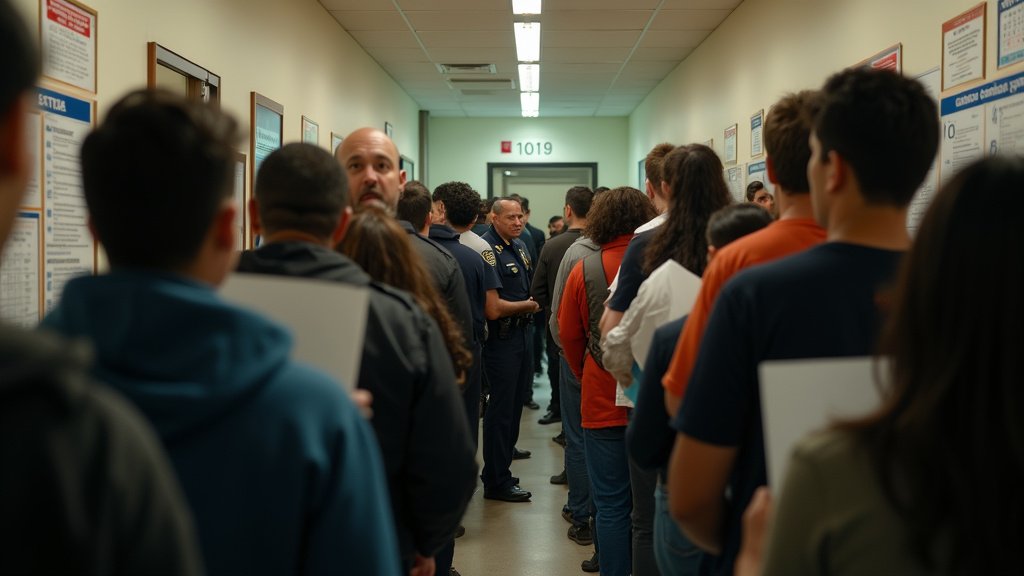USCIS Ends Parole Program, Signaling Shifts in Immigration Landscape
The United States Citizenship and Immigration Services (USCIS) has made a significant announcement impacting the immigration landscape. Published on July 19, 2025, the agency confirmed the termination of a key parole benefit, alongside the news that immigration fees will be increasing in the near future. This dual announcement has raised concerns and prompted discussions among immigration lawyers, advocates, and those navigating the complex processes of U.S. immigration.
Parole Benefit Termination: A Closer Look
The specific parole benefit being terminated was not detailed in the initial announcement from USCIS. However, the agency’s decision is expected to affect various individuals and groups, including those seeking to enter the United States temporarily for urgent humanitarian reasons or significant public benefit. Parole, as a discretionary tool, has been used to allow individuals who may not otherwise be eligible for visas to enter the country on a case-by-case basis. Its termination, or even significant restriction, has the potential to create hardships for those seeking refuge or seeking to reunite with family members.
This decision could also affect individuals waiting for visas outside the U.S. Some individuals facing extreme circumstances, such as medical emergencies, may use parole to enter the U.S. while they await their visa applications to be processed. The revocation of a parole program can leave vulnerable populations, who rely on such benefits, without a viable path to enter the U.S. legally.
Legal experts and immigration rights organizations are likely to be reviewing the implications of this decision, evaluating its impact on various populations, and considering potential legal challenges or advocacy efforts. The specifics of how the changes will be implemented, including whether any existing parole cases will be affected, will be a central point of interest.
Fee Hikes on the Horizon
Accompanying the news of the parole benefit termination, USCIS also declared its intention to increase immigration fees. While the agency did not specify the exact amount of the increase or the date of implementation, the announcement indicates that those changes are coming “soon.” Such fee hikes often cover the costs associated with processing applications, maintaining infrastructure, and staffing. These costs are significant, and the fees charged by USCIS are often the primary source of the agency’s funding.
The impact of fee increases can be wide-ranging. Those applying for citizenship, seeking to adjust their status, or requesting other immigration benefits may find the process increasingly costly. For many, the cost of legal services, application fees, and related expenses can already be a considerable financial burden. An increase in fees could make it more difficult for some to pursue their immigration goals and may affect the overall demand for legal assistance.
The announcement from USCIS did not detail the reasons behind the fee increases. However, the agency may cite rising operational costs, increased demand for services, or other factors as justification. The exact nature of these fee changes, including the scope of the applications affected, will be crucial information to assess the impact on those seeking to immigrate.
Significance and Implications
The tandem announcements – the ending of a parole program and the announcement of impending fee hikes – represents a noteworthy shift in U.S. immigration policy. These changes, although separate, both point towards a potential reshaping of the immigration landscape.
The termination of the parole program, without adequate alternative solutions, could lead to increased hardship for those facing dire circumstances. In the long term, this change may impact the flow of immigration cases and burden the legal system with appeals and other challenges. The financial impact of the fee increase could affect individuals and families who may need assistance. Legal professionals and immigration rights groups are expected to closely monitor the unfolding developments, analyze the implications, and offer guidance to the affected populations.
The Road Ahead
As the immigration field anticipates the fee hikes and waits for further details about the parole program termination, all eyes will be on USCIS. The agency will need to address crucial questions to clarify the impacts of these changes. The implications will require continuous evaluation. The details, once released, will shed light on the specifics of the changes, and their influence on future immigration trends.
The U.S. immigration system is complex, and changes like these underscore the need for individuals to remain informed, seek legal counsel when needed, and stay up-to-date on the latest developments. The announcements made on July 19, 2025, by USCIS, while providing a glimpse into future directions, also highlight the dynamic nature of the immigration landscape.





